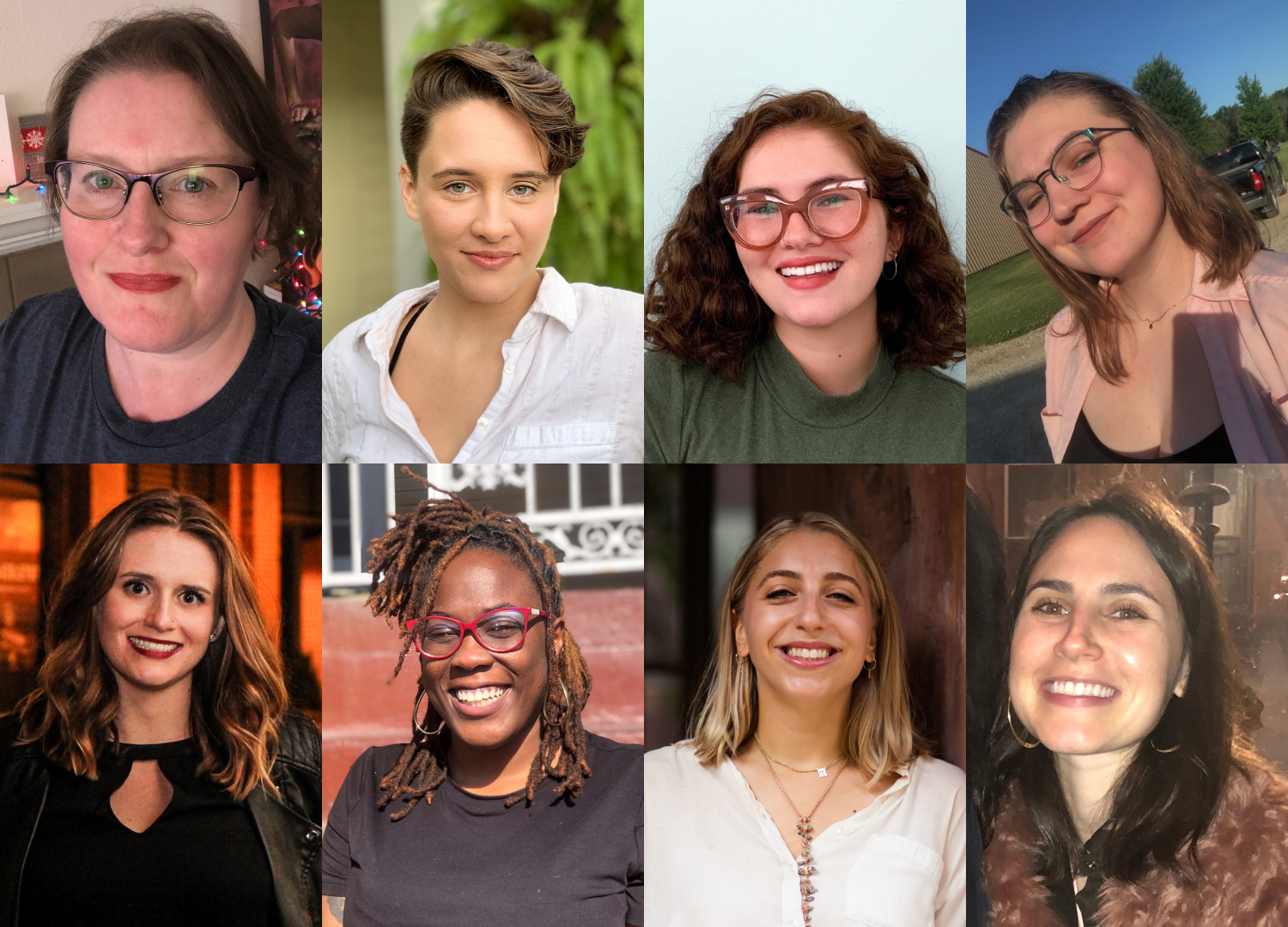You are here
Announcing the First Fellowship Cohort for the Putting Policy in its Place Program

The Putting Policy in its Place (PPIP) program is pleased to announce its first eight fellows from the Tulane University School of Social Work. Last summer, the industry-setting standard for social work education awarded TSSW a grant to expand its field education opportunities. The Council on Social Work Education (CSWE) funding founded the PPIP fellowship, which allows Master of Social Work candidates to connect their field work and policy work in real-time and in real-world situations.
“Policy works on multiple levels to create and remove barriers within the systems we all operate - government, education, healthcare,” Clinical Assistant Professor Dr. Coleen Cicale, one of the faculty members coordinating the program. “Understanding it will allow these fellows to enact positive change for individuals and communities, especially those who have been historically marginalized and oppressed.”
A comprehensive application process yielded an impressive group of fellows who begin this semester. Through anti-racism education, enhanced policy-based instruction and mentorship, and group meetings, fellows will learn how to identify the ways policy shapes their clients’ lives, understand how policy impacts their practice, and more effectively utilize policy to work to empower individuals and communities. They will also have the opportunity to implement policy-based social change projects at their field practicum sites and potentially present at national social work conferences.
Congratulations to TSSW’s first PPIP Fellowship cohort, which includes a variety of personal backgrounds and social work interests.
- Tabitha Aditi (she/her/hers) is in the dual degree program which combines the MSW with a Master of Science in Disaster Resilience Leadership. She lives in Austin, and her field placement is with Texas Gun Sense, a non-partisan organization which advocates for common sense, evidence-based policies to reduce gun violence. She is excited to take part in the Texas legislative process, and her interests are in the implementation of research in policymaking, specifically in lethal means safety and the safe storage of firearms to aid in suicide prevention.
- Brittney Delaney (she/her/hers/they/them/their) getting a certificate in Mental Health, Addiction, and the Family along with her MSW degree. She is from South Boston, Massachusetts, and her field placement is at the palliative care unit at Children's Hospital New Orleans. She is hoping to gain information and skills on how to best be a catalyst for healthcare policy change, particularly for those seeking palliative and hospice care. Through policy work, she would like to be an advocate for palliative and hospice care in general, as it is not widely understood or available to people who need it and/or could benefit from it. Most importantly, however, she would like to gain a general understanding of how to go about making any policy change because she sees this as an essential part of being a genuinely effective social worker.
- Joanna Haug (she/her/hers) is from New Orleans, and her field placement is Trauma Informed Schools at Greenlawn Terrace Elementary School. Through the PPIP Fellowship, she is hoping to be able to apply her previous sociology experience to her current social work education and grow in her understanding of how policy impacts individuals, communities, and society as a whole. She is looking forward to learning from her field placement and focusing on policies that impact children and schools.
- Amelia Howard (she/her/hers) is from Fridley, Minnesota, and her field placement is at the Louisiana Center for Children’s Rights, a nonprofit law office that stands with kids in the justice system. She hopes to learn more about the everyday workings of policymaking on the local, state, and national levels and to understand the politics behind social welfare policy creation and funding. She is also using this as an opportunity to prepare for her career goal of becoming a policy advocate.
- Margaret McFarland (she/her/hers) is pursuing a certificate in Mental Health, Addiction, and the Family in addition to the MSW. She is from Burtonsville, Maryland and is completing her field placement at Thrive DC, a nonprofit that works to end and prevent homelessness in Washington, DC. She hopes this fellowship will help her develop the skills and experience needed to effectively address the social determinants of health and reduce health disparities through policy intervention.
- Kaylen Sanchez (she/her/hers) is pursuing a certificate in Disaster and Collective Trauma in addition to the MSW. She is from New Orleans and is performing her field placement at the New Orleans Veterans Medical Center. She hopes to learn about policy advocacy, evaluation, and organizing strategies that will help her become an effective social worker for her community.
- Abbie Sussman (she/her/hers) is pursuing a certificate in Mental Health, Addiction, and the Family in addition to the MSW. She is from Tenafly, New Jersey and performing her field placement at The First 72+, a New Orleans area organization endeavoring to stop the cycle of incarceration by fostering independence and self-sustainability through education, stable and secure housing and employment, health care, and community engagement. Through the PPIP fellowship, she hopes to gain a more in depth understanding of how to enact change through policy work as a social worker. She is specifically interested in learning how to do this within the criminal justice system, which she will have the opportunity to do through her field work at the First 72+.
- Jaclyn Udell (she/her/hers) is pursuing a certificate in Mental Health, Addiction, and the Family in addition to the MSW. She grew up in Raleigh, North Carolina and has been living in Manhattan for the last three years. She will be a clinical and advocacy intern at the Multidisciplinary Association for Psychedelics (MAPS). As psychedelics like ketamine, psilocybin, and MDMA are increasingly legal in specific therapeutic settings, across the U.S. and Canada, she is fascinated to dive into the political history of what came before, as a prerequisite to participating in what is to come. She aspires to become an expert in the legal history of psychedelics and its current landscape.